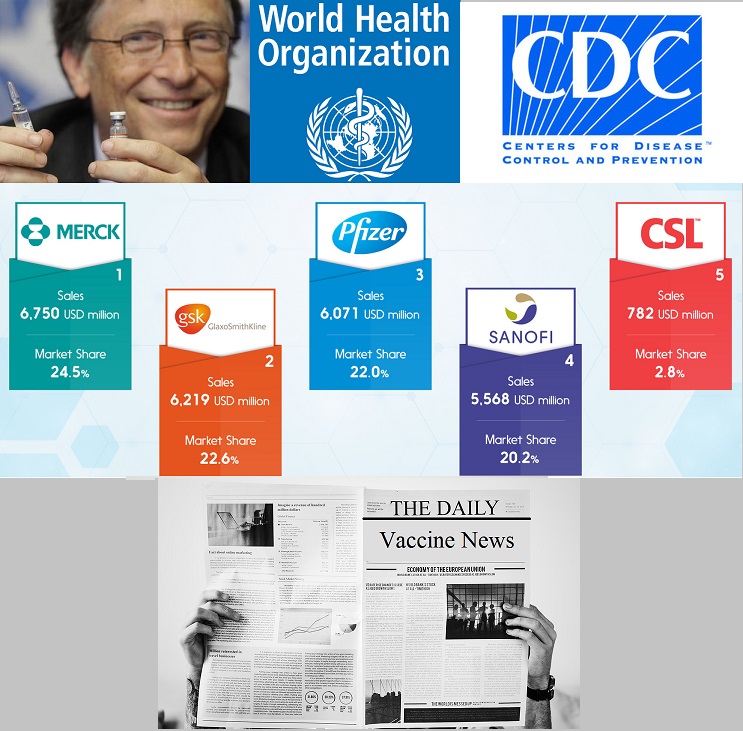
Who controls vaccine information in the corporate-sponsored mass media?
WHO, Pharma, Gates & Government: Who’s Calling the Shots?
by Barbara Loe Fisher
National Vaccine Information Center
On Jan. 16, 2019 the World Health Organization (WHO) issued a report ranking “vaccine hesitancy” as one of the top “Ten Threats to Global Health in 2019”, alongside air pollution and climate change; noncommunicable diseases; global influenza pandemic; antimicrobial resistance; and infectious diseases such as ebola, dengue fever and HIV.1
Throughout history, the greatest contributors to disease and early death in human populations have been poverty, poor sanitation and poor nutrition, 2 3 4 yet infectious diseases with pharmaceutical solutions dominated this list.
And there was no mention of the major opioid addiction crisis crippling and killing tens of thousands of people in the U.S. and Europe, 5 6 or the iatrogenic medical error epidemic that every year claims more than 750,000 lives in Europe 7 and 250,000 lives in the U.S., where it is the third leading cause of death. 8
The immediate mainstream media response to the WHO’s announcement was to focus on “vaccine hesitancy.”
On Jan. 19, the Editorial Board of the New York Times declared that “anti-vaxxers” are “the enemy” and called on the U.S. government to “get tough” by waging a “bold and aggressive” pro-vaccine campaign that includes “tightening restrictions around how much leeway states can grant families that want to skip essential vaccines.” 9
By Jan. 23, The Hill announced that Washington state had declared a state of emergency because of 23 cases of measles reported in an “anti-vaccination community” near Portland, Oregon,10 and there was a public call in the UK for social media platforms to “clamp down on fake news” and censor “misleading information and negative messaging around vaccination.” 11 12
The New York Times editorial headline “How to Inoculate Against Anti-Vaxxers” was a theme repeated in articles reacting to the WHO’s suggestion that people wanting to make informed, voluntary decisions about vaccination are a global menace.
One doctor suggested that parents who don’t vaccinate their children are selfish:
“… it’s a matter of ‘I don’t care about other people in the community, I only care about the health and welfare of my own child.’” 13
There was no discussion about institutionally acknowledged gaps in vaccine safety science 14 15 or the fact that most parents dutifully follow the advice of pediatricians and public health officials and only became vaccine safety critics after the risks of vaccination for their children turned out to be 100 percent.16 17
No discussion about the fact that since 2011, pharmaceutical companies have no liability for injuries and deaths caused by government recommended and mandated vaccines they sell in the U.S. 18
Instead, parents of vaccine injured children and others concerned about vaccine safety, who for decades have been asking government and industry to produce better quality vaccine science and more humane vaccine policies that respect genetic and biological diversity, were stereotyped as “anti-vaxxers” and demonized as a “threat” to public health.
The Editorial Board of The New York Times explained,
“It’s no mystery how we got here. On the internet, anti-vaccine propaganda has outpaced pro-vaccine public health information.”
Authoritatively, “the Board, its editor and the publisher” of The New York Times stated that,
“Scientists, especially, are uncomfortable with black and white statements, because science is all about nuance. But, in the case of vaccines, there are some hard truths that deserve to be trumpeted. Vaccines are not toxic, and they do not cause autism. Full stop.”
There was no discussion about why people are legitimately concerned about vaccine ingredients 19 and Pharma paying the Food and Drug Administration (FDA) to fast track new vaccines to licensure without adequate testing. 20
No discussion about the fact that doctors are giving children 69 doses of 16 vaccines starting on the day of birth 21 – three times as many vaccinations as they got in 1983 – 22 and cannot explain why so many highly vaccinated children in the U.S. are sicker, not healthier today: 1 child in 6 learning disabled 23 and 1 in 40 with autism 24 and millions more suffering with asthma, diabetes, severe allergies, epilepsy, cancer, schizophrenia, depression and other chronic disease marked by chronic inflammation in the body.
The CDC states that,
“90 percent of the $3.3 trillion in annual health care expenditures are for people with chronic and mental health conditions.” 25
The largely unexplained chronic disease and disability epidemic in the U.S. is bankrupting the U.S. health care system and there is no research being funded to investigate the role that ever increasing numbers of vaccines given to infants, children and adults may be playing.
Multi-national pharmaceutical corporations 26 27 in command of a global 34 billion dollar vaccine market 28 29 are holding billion dollar contracts with mass communication companies 30 and public-private partnerships with governments to purchase vaccines and create vaccine marketing campaigns 31 32 33 34 that dwarf the relatively small number of websites and blogs labeled “anti-vax” simply for criticizing vaccine science and government policy. 35
Yet, there is no recognition by mainstream media articles of the fact that wealthy corporations and philanthropic foundations with political agendas, 36 37 well paid medical doctors, 38 39 40 and government health officials in charge of operating the vaccine system 41 are in privileged positions of power with a distinct advantage over ordinary people subjected to vaccine laws that place an unequal risk burden on individuals with genetic and biological susceptibility to suffering harm from vaccination. 42 43
“Bio-Populism” Blamed for Vaccine Hesitancy in Europe
In the UK, The Economist published an article entitled “The campaign against vaccination,” in which an anonymous author declared, “Across Europe, the rise of populism is damaging public health. A common feature is skepticism of vaccines.” 44
Pointing to Italy, Austria and France as hotbeds of political support for “parental choice” about vaccination, the author attempted to politically tie growing public support for vaccine choice to a fear of migrants and coined a new term: “bio-populism:”
“It is increasingly clear that Europe’s populists want for the body what they want for the nation: purity, unity and self-governance. Populist health policies mean citizens being free from outside influences – whether vaccines devised by doctors, regulations invented by politicians or diseases supposedly carried by migrants – and in control of their own epidemiology.”
He (or she?) went on to explain that bio-populism is a “combination of me-first libertarianism and anti-expertise herd mentality.”
Quoting Italian medical professor Dr. Roberto Burioni, who has stated authoritatively that ”Vaccines are not an Opinion” and offered an explanation for “Why Science Can’t be Democratic,” The Economist article ended with a warning that,
“At least one pandemic will probably sweep the interconnected world in the next decade. Viruses, after all, know no borders.”
There was no discussion of the fact that most parents and physicians calling for better quality vaccine science and informed consent protections in vaccine laws are ideologically diverse and do not all identify with one particular political party.
In fact, a 2015 Pew Research Center survey revealed that age and parenthood had more to do with vaccine hesitancy, with young adults and parents with children under age 18 being less supportive of mandatory vaccination. 45
Vaccines, Autism, Erosion of Trust in Drug Companies & Doctors
In the U.S., Live Science trumpeted: “Anti-Vaccine Movement Joins Ebola, Drug Resistance on List of Top Global Threats.” 46
A doctor at Johns Hopkins Center for Health Security was quoted as saying the reason that noncommunicable diseases and not infectious diseases made the WHO’s top ten global threat list is “a testament to how powerful vaccines are.”
Pointing to the jubilant public response to the release of polio vaccine in the 1950s, he commented,
“We need to get back to that era when vaccines were celebrated the way a new iPhone is.”
The headline People Magazine chose was “World Health Organization Names Anti-Vaxxers As a Top Threat to Global Health in 2019.” 47
At the beginning of the article, the following statement appeared:
“There is no scientific link between vaccines and autism, according to the Centers for Disease Control.”
It ended with the statement
“To tackle the rising levels of vaccine hesitancy, WHO plans to push forward with the goal of eliminating cervical cancer with greater application of HPV vaccine…”
U.S. News & World Report ran this headline: “WHO: Anti-Vaccine Movement a Top Threat in 2019.” 48
That author stated,
“So-called anti-vaxxers refuse the required shots for their children on religious or philosophical grounds. An increase in unvaccinated children has, in part, been tied to the medically discredited belief that vaccines cause autism spectrum disorder.”
Pointing out that a recent U.S. survey found that public trust in vaccination is on the decline, she added,
“The heightened mistrust, researchers said, was especially prevalent in small pockets of people in insular communities or like-minded communities online.”
Pacific Standard asked “Are Anti-Vaxxers A Major Health Threat? The World Health Organization Says Yes.“ 49
This article included a quote from a pediatrician:
“The ongoing erosion of trust in the medical establishment as a whole is also to blame, as frequent reports of dubious financial relationships between physicians, professional medical societies, and the pharmaceutical industry leave many questioning whether or not physicians can be trusted.
Unsure of what to do and whom to listen to, many seek answers to their questions elsewhere, or simply rely on their gut feeling…”
Salon created the most sensational headline that asked the foreboding question, “The anti-vaxxocalypse” What happens to humanity if vaccine hesitancy continues?” 50
The author explained to readers,
“In other words, the anti-vaccination movement, which has inspired many in first-world countries to refuse or hesitate vaccination for easily-preventable diseases, is now a threat to global health and, ergo, stability.”
The exaggerated response to the WHO announcement by corporations owning mainstream media outlets has been curiously uniform.
Often using identical talking points, perspective from parents and physicians in the U.S. and Europe rationally calling for reform of the vaccine policies and laws is left out. 51
The politics of vaccination is in full swing, but where is the money coming from to fund these vaccine marketing campaigns using name calling, threats, shaming and misinformation to demonize and call for discrimination against those who criticize vaccine science and government policy?
The World Health Organization (WHO) Marketing Vaccines
Immediately after World War II in 1945, the United Nations (UN) voted to establish a new international health organization.
In 1948, the World Health Organization WHO) was founded by the UN after ratification by 26 members states and given a budget of $5M.
WHO is a specialized agency of the UN headquartered in Geneva, Switzerland and is composed of six regional offices operating in different parts of the world, including the Pan American Health Organization (PAHO) located in Washington, D.C.
Today, 194 members states of the United Nations are impacted by the activities of the WHO, which has a broad mandate to “act as the directing and coordinating authority on international health work.” 52
The WHO Constitution, revised in 2006, states that its objective “is the attainment by all peoples of the highest possible level of health” and health is defined as “a state of complete physical, mental and social well being and not merely the absence of disease or infirmity.” 53
The WHO Constitution also states that,
“Informed opinion and active co-operation on the part of the public are of the utmost importance in the improvement of the health of the people.”
The top priorities of the WHO when it was founded seventy years ago were malaria, tuberculosis, venereal diseases, maternal and child health; sanitary engineering and nutrition.
During the first 30 years of WHO’s operation, the UN agency spearheaded a global smallpox eradication campaign (1958-1980); prevention and control of yaws, endemic syphilis, leprosy, trachoma, cholera and yellow fever (1960s); fertility regulation and birth control (1970s) childhood vaccination programs (initiated 1974) and the institution of primary health care of all national health systems (initiated 1978). 54
Today, the WHO is the world’s largest and most influential public health agency with an annual budget for 2018-2019 of $4421.5M ($4.4 billion). 55
About 20 percent ($956.9M) of the WHO budget is funded by assessments on member states and the remaining 80 percent funded by “voluntary contributions.” The biggest individual programs funded by WHO are for polio eradication vaccine campaigns ($903M); vaccine campaigns for other communicable diseases ($805M); and corporate services/enabling functions ($715.5M).
Currently, the top 10 UN member state annual funders of WHO are the governments of United States of America ($125M); Japan ($49M); China ($40M); Germany ($33M); France ($27M); United Kingdom of Great Britain and Northern Ireland ($23M); Brazil ($19.5M); Italy ($19M); Canada ($15M); Australia ($12M). 56
The Bill & Melinda Gates Foundation is the largest non-state funder of the WHO, having donated more than $2B in earmarked grants to the international health agency since 1998, and is the second largest WHO funder overall (after the U.S. government). Because Gates Foundation grant money is earmarked for specific programs, such as vaccine purchase, delivery and promotion, the Gates Foundation significantly influences the setting of WHO’s program priorities. 57
In 2010, after a joint investigation by the British Medical Journal (BMJ) in collaboration with the London-based Bureau of Investigative Journalism, an article was published in the BMJ revealing that three key scientists, who influenced the WHO’s decision to declare a swine flu (H1N1) influenza pandemic in 2009 and recommend that all countries use and stockpile vaccines and pandemic flu drugs, had financial ties to pharmaceutical companies profiting from the WHO recommendations (GlaxoSmithKline and Roche).
WHO was also criticized for lack of transparency for refusing to release the identities of the 16 members of an Emergency Committee formed in 2009 to guide pandemic policy. 58
The 2009 pandemic H1N1 vaccine, which was rushed to market to address a WHO declared pandemic that did not happen, triggered an autoimmune reaction in more than 1,300 people in Europe who got GSK’s Pandemrix vaccine and left them with narcolepsy, an incurable immune mediated neurological disorder. 59
Gavi, the Vaccine Alliance Marketing Vaccines
The WHO and the U.S. government are founding partners of Gavi, the Vaccine Alliance. In 2000, the Bill and Melinda Gates Foundation provided $750M in seed money to spearhead the creation of Gavi, a public-private partnership and multilateral funding mechanism involving the WHO, governments, the vaccine industry, the World Bank, philanthropic foundations and civil society groups to “improve access to new and underused vaccines for children living in the world’s poorest countries.” 60
Of the more than $15B raised by Gavi since 2000 to vaccinate the world’s children, U.S. government contributions have totaled $1.9B or 12 percent of all contributions received by Gavi. The United Kingdom has contributed $2.2B or 14 percent of Gavi’s total contributions.
The single biggest funding source for Gavi is the Gates Foundation, which has donated more than $3B or 20 percent of Gavi’s total income. 61 Between 2000 and 2013, only about 10 percent of total funding provided by Gavi ($862M) was used to strengthen health systems in developing countries, such as improving sanitation and nutrition, while nearly 80 percent was used to purchase, deliver and promote vaccines. 62
Gavi is headquartered in Geneva with an office in Washington, D.C. that carries out day-to-day operations and one of Gavi’s core goals is to “shape markets for vaccines and other immunization products.” In 2006, Gavi created the International Finance Facility-Immunisation (IFFlm) to use donor funding commitments to back the issuance of special bonds in capital markets to provide “up front” financing to Gavi.
In 2010, Gavi created the Advance Market Commitment (AMC) model to accelerate access to pneumococcal vaccines with donors providing up front funding commitments to support vaccine purchase and speed the introduction and use of vaccines in countries partnering with Gavi.
Currently, the AMC incentivizes vaccine manufacturers to sign contracts to provide pneumococcal vaccine to developing countries at lower per dose prices and be reimbursed by Gavi funds. By March 2015, Pfizer and GlaxoSmithKline had received more than $1B from Gavi’s AMC funds. 63
CDC officials provide Gavi with technical support and guidance. In 2015, the U.S. Congress pledged to appropriate $1B to Gavi that was spread over four years (2015-2018). 64
On Oct. 16, 2018 at the World Health Summit in Berlin, Gavi CEO Dr. Seth Berkley announced that 11 heads of the world’s leading health and development organizations had signed a “landmark commitment” to find new ways to accelerate achieving goals of the United Nation’s Sustainable Development Goals created in 2015.
The new Global Action Plan vaccine marketing initiative is being coordinated by the WHO. 65 Relating Sustainable Development Goals to vaccination of all the people in the world, Gavi states that: 66
- “immunization protects people from being forced into poverty by high out-of-pocket expenses;”
- “vaccines protect child health and support cognitive development, allowing children to perform better at school and have more opportunities;”
- “vaccinated healthy children grow into a productive workforce and become strong contributors to the economy, and healthy children free up parents’ time so they are able to work;”
- “vaccines are critical to building people’s resilience to and mitigating the risk of disease outbreaks tied to climate change…;” and
- “good health is a critical determinant of peace and well being in a society. People-centered health systems are core social institutions in every country, and immunisation is often the first point of contact between these systems and the population.”
In 2016, Dr. Berkley and other Gavi executives came under criticism in the UK in 2016 for taking excessively high salary packages. According to an investigative news report: 67
“Seth Berkley has taken home more than £2 million over the past four years as chief executive officer of Global Alliance for Vaccines and Immunisation (Gavi), which has been given £1.5 billion by Britain. Another official at the Geneva-based group collects a pay package of more than £500,000 a year. Incredibly, Dr. Berkley was given a housing allowance on top of his £623,370 pay package.”
In December 2018, Dr. Berkley told CNN that
“while measles is one of the few diseases we could potentially eradicate, that will never happen if wealthy countries like the United States can’t maintain herd immunity. Because a measles case anywhere is a threat everywhere.”
He said parents in the U.S. are delaying their children’s vaccinations
“perhaps because they believe in immunization but are worried by some of the anti-vaccine scaremongering. This needs to stop.”
Echoing the idea that parents who don’t go along with the vaccine program are selfish, he added,
“in countries like the United States we need to stop thinking about vaccination as something you only do to protect the ones you love, and instead view it also as a goodwill act for the benefit of others.” 68
According to the CDC, in 2017-2018 “vaccination coverage among kindergarteners remained high,” with 94 percent of children having received two doses of measles, mumps and rubella (MMR) vaccine; 4 or 5 doses of diphtheria, tetanus and pertussis (DTaP) vaccine and two doses of varicella zoster (chickenpox) vaccine (among many other vaccines required by states for school attendance). Two percent of kindergarteners had an exemption from one or more state required vaccines. 69
The Bill and Melinda Gates Foundation Marketing Vaccines
The Gates Foundation was established in 2000 by Microsoft Corporation founder Bill Gates and his wife, Melinda. 70
Headquartered in Seattle, Washington, the Gates Foundation is the largest philanthropic foundation in the world with a $43.5B trust that makes grant payments of more than $3B annually to advance the foundation’s goals for reforming education systems, such as institution of Common Core curriculum in all U.S. schools, 71 and funding public health initiatives, primarily global vaccination programs. 72 A major goal of the Gates Foundation is to make sure every child in the world is vaccinated. 73
Investor businessman Warren Buffet, who took control of textile manufacturer Berkshire Hathaway, Inc. in 1965 and went on to amass a personal fortune of more than $60B, pledged $31B and became a co-director of Gates Foundation in 2006. 74
In 1998, the same year that the U.S. Department of Justice filed an anti-trust lawsuit against Microsoft Corporation, 75 Bill and Melinda Gates committed $100M to create the Bill & Melinda Gates Children’s Vaccine Program. One purpose of that program was to establish an international consensus on vaccine use recommendations:
“Efforts will be made to support international conferences and the development and dissemination of strong international consensus statements and recommendations for the use of the new vaccines.” 76
The homepage of the Gates Foundation proclaims ALL LIVES HAVE EQUAL VALUE and states:77
“We believe we can save lives by delivering the latest in science and technology to those with the greatest needs.
We work with partners to provide effective vaccines, drugs and diagnostics and to develop innovative approaches to deliver health services to those who need it most. And we invest heavily in developing new vaccines to prevent infectious diseases that impose the greatest burden.”
In 2016, Global Justice Now published an investigative report, Gated Development: Is the Gates Foundation always a force for good? Authors were critical of the unchecked political power and influence on global health programs and agricultural policies of Bill Gates and the Bill and Melinda Gates Foundation (BMGF): 78
“To say that the BMGF has become an important actor in international development would be an understatement. When it comes to global health and agriculture policies, two of its key grant areas, the BMGF has become probably the most influential actor in the world. It is also likely that Bill Gates, who has regular access to world leaders and is in effect personally bankrolling hundreds of universities, international organisations, NGOs and media outlets, has become the single most influential voice in international development.”
“But the BMGF’s increasing global influence is not being subjected to democratic scrutiny. Unlike governments, which are formally accountable to their electorates, the BMGF is a private US foundation, and remains unaccountable to public bodies (except for tax reporting purposes). Even worse, the BMGF appears to have bought the silence of academics, NGOs and the media who might otherwise be expected to criticize aspects of the foundation’s work.”
Money Makes the World Go Around
Congress appropriated nearly $90B to the U.S. Department of Health and Human Services in 2018 and the biggest line item in the CDC’s $11B budget was the Vaccines for Children program (VFC) ($4.5B), which was created by Congress in 1993. 79
Under the VFC program, the federal government purchases CDC recommended vaccines from vaccine manufacturers to administer to children who are on Medicaid, are uninsured or whose health insurance plans do not fully cover CDC recommended vaccines. 80 81
Hundreds of millions of dollars are additionally allocated in the HHS budget for vaccination programs, including $700M for the National Center for Immunization and Respiratory Diseases.
One of the most politically powerful public-private partnerships in the world today is the lucrative one that has been forged by the pharmaceutical industry with government, 82 83 84 85 86 mainstream media 87 and wealthy philanthropic foundations with political agendas. 88 89
In the past decade, these public private partnerships have come under scrutiny by public policy analysts. In 2015, authors of a special report published by the Global Policy Forum observed: 90
“However, it is not only “big business” but also “big philanthropy” that has an increasing influence in global development policy, particularly large philanthropic foundations.
The scope of their influence in both past and present discourse and decision-making processes is fully equal, and in some cases goes beyond that of other private actors.
Through the sheer size of their grant-making, personal networking and active advocacy, large global foundations, most notably the Rockefeller Foundation and the Bill & Melinda Gates Foundation have played an increasingly active role in shaping the agenda-setting and funding priorities of international organizations and governments.”
For example, the Gates Foundation has given Johns Hopkins more than $100M in research grants since 2015, including for vaccine development and promotion. 91
At the same time, Johns Hopkins University receives more than $2B per year in funding from U.S. government agencies, such as the National Institutes of Health (NIH) and the National Science Foundation (NSF), to conduct research, including for vaccine development and vaccine use promotion. 92
The National Institutes of Health (NIH) and other federal health agencies give millions of dollars in taxpayer dollars to academic institutions and vaccine manufacturers to improve vaccine technology, find new lucrative vaccine markets, and boost vaccine marketability. 93
The U.S. government also partners with the Gates Foundation to develop and promote vaccine use.
For example, in 2013, the CDC Foundation received three grants totaling $13.5M from the Gates Foundation to globally “advance the implementation” of meningitis and rotavirus vaccine programs. 94
The Centers for Disease Control and the CDC Foundation have received more than $167M from the Gates Foundation. 95
Vaccine manufacturers have also received millions of dollars in grants from the Gates Foundation, including GlaxoSmithKline (over $50M); 96 Merck $1.4M; 97 Pfizer $16.5M; 98 and Sanofi Pasteur $3.6M. 99
Big Media: Under the Influence
Mass media corporations are also under the influence of Big Pharma and Big Philanthropy money.
For example, National Public Radio has received $20M in grants 100 and Solutions Journalism Network has received $4M 101 in grants from the Gates Foundation. Recently, Gates’ Microsoft Corporation partnered with NewsGuard Technologies, Inc.,102 103 a new corporation that is rating websites and online publications to “fight false news, misinformation and disinformation.” 104 105 106
The NewsGuard corporation is also collaborating with other corporations, such as Google, 107 108 which owns over 90 percent of the Internet search market.109
One of the biggest investors in NewsGuard is Publicis, the oldest advertising company in the world and the third largest mass communications company today. 110
Publicis is paid billions of dollars by pharmaceutical companies to market vaccines,111 including a $1.5B media contract with GlaxoSmithKline.112 PDI, a Publicis health company states: 113
“Vaccination coverage in the United State is high, but in the face of the resurgence of vaccine-preventable diseases such as pertussis and measles, the existing gaps in the vaccination coverage of the US population have become worrisome.
Gaps exist because not every patient who needs a vaccination gets it at the recommended age.
Moreover, the recommendations for new vaccines, including vaccines for influenza and human papillomavirus (HPV), have been expanded…
PDI’s field-based medical sales representatives and inside medical sales representatives from our healthcare contact center can increase adoption of vaccines by responding to questions and concerns…To increase immunization rates, we must build sustainable systems for vaccination within the context of a changing healthcare system.
Here some recommended steps toward achieving this goal: assessment of the actual vaccination rate in a provider’s practice; consistently making recommendations for timely vaccinations to both the parents of pediatric patients and adult patients; standing orders for non-physician personnel to carry out vaccinations at the scheduled time without physician involvement; educating physicians on emerging research of vaccine risks, and on how to interact with parents who are concerned about the detrimental effects of the MMR and HPV vaccines; and educating physicians about state-sponsored and other programs that can help patients overcome financial barriers to vaccination.”
It is clear that mass media communications today is being controlled by corporations financially tied to pharmaceutical companies and influenced by powerful political institutions in society.
It goes a long way to explaining why mainstream media outlets have been united in attacking parents and physicians who defend the ethical principle of informed consent, including informed consent to vaccination, and are calling for vaccine exemptions to be severely restricted or eliminated. 114
The five largest companies in the world today are Apple, Google, Microsoft, Amazon and Facebook. 115
These and other technology corporations dominate online communications and sales and are positioned to join together to aggressively market vaccines and promote “no exceptions” vaccine use policies endorsed by the WHO and governments.
The threat to autonomy and freedom of thought and speech posed by these companies, especially in censoring online public conversations about vaccination and health, is considerable.116 117
The People are Not Represented
Today, everybody knows somebody who was healthy, got vaccinated and was never healthy again.
The people, whose lives are being impacted by business deals between governments, Big Pharma and Big Philanthropy, increasingly are being marginalized in the top down public policymaking process by wealthy and powerful institutions in society financing the global multi-billion dollar vaccine industry.118
This is evident when the people raise their voices to ask for better vaccine science and more humane public health policies and are demonized, discriminated against and punished by those in control of those wealthy and powerful institutions.
A system that will not bend will break. The responsibility for the crisis of trust in the global vaccination system lies squarely at the feet of those who operate the system and refuse to acknowledge the suffering of the people harmed by vaccines. 119 120
Read the full article at NVIC.org.
References
1 World Health Organization (WHO). Ten Threats to Global Health in 2019. Jan. 16, 2019.
2 CDC. Achievements in Public Health, 1900-1999: Control of Infectious Diseases. MMWR. July 30, 1999.
3 Guyer, B. Freedman, M. Strobino, D. Sondik, E. Annual Summary of Vital Statistics: Trends in the Health of Americans During the 20thCentury. Pediatrics. 2000;106;1307.
4 McKinlay JB, McKinlay SM. The Questionable Contribution of Medical Measures to the Decline of Mortality in the United States in the Twentieth Century. Health and Society. MMFQ. Summer 1977. P 421.
5 U.S. Department of Health and Human Services. What is the U.S. Opioid Epidemic? Jan. 22, 2019.
6 Toich L. Opoid Epidemic Ravages Europe. The American Journal of Pharmacy Benefits June 22, 2017.
7 World Health Organization. Data and Statistics – Medical Errors and Health Care Related Adverse Events.
8 Minemyer P. Medical errors officially the third leading cause of death in the U.S., study finds. Fierce Healthcare May 3, 2016.
9 Editorial Board. How to Inoculate Against Anti-Vaxxers. The New York Times Jan. 19, 2019.
10 Gstalger MM. Washington declare public health emergency as measles hits anti-vaccination community. The Hill Jan. 23, 2019.
11 The Irish Times. Social media spreading ‘dangerous information’ about vaccines – report. The Irish TimesJan. 23, 2019.
12 Iacobucci G. Vaccination: “fake news” on social media may be harming UK uptake, report warns. BMJ2019; 364.
13 Stratman J. Doctors react to WHO adding anti-vaccination to ’19 global health threats. 14 News (WFIE)Jan. 24, 2019.
14 Institute of Medicine Committee to Review Adverse Effects of Vaccines. Evaluation of Biologic Mechanisms of Adverse Effects: Increased Susceptibility. (p. 82). Washington, D.C. The National Academies Press 2012.
15 National Vaccine Information Center. NVIC Supports Three of Five Recommendations of New IOM Report on U.S. Childhood Immunization Schedule Safety and Calls for Transparency. Business Wire Jan. 16, 2013.
16 Fisher BL. The Moral Right to Conscientious, Philosophical and Personal Belief Exemption to Vaccination. Presentation to the National Vaccine Advisory Committee (NVAC) May 2, 1997.
17 Fisher BL, Williams K, Wrangham TK. NVIC response to an inquiry from the Government Accountability Office (GAO) on the implementation of the federal vaccine injury compensation program (VICP) after passage of the 1986 National Childhood Vaccine Injury Act. National Vaccine Information Center July 11, 2014.
18 Fisher BL. End Pharma Product Liability Shield Endangering Public Health and Human Rights. National Vaccine Information Center Nov. 8, 2016.
19 CDC. Vaccine Excipient & Media Summary. Epidemiology and Prevention of Vaccine-Preventable Diseases,13th Edition June 2018.
20 Drug Companies Pay FDA and NIH to Fast Track and Market Vaccines. The Vaccine Reaction Sept. 28, 2018.
21 U.S. Centers for Disease Control and Prevention (CDC). Recommended Immunization Schedules for Persons Aged 0 Through 18 Years, United States, 2018.
22 CDC. Recommended schedule for active immunization of normal infants and children 1983.
23 Boyle CA, Boulet S et al. Trends in the Prevalence of Developmental Disabilities in US Children 1997-2000.Pediatrics May 23, 2011.
24 Mozes A. U.S. autism rate up to 1 in 40 children, CDC says. Health Day News/UPI Nov. 26, 2018.
25 CDC. Health and Economic Costs of Chronic Diseases. Oct. 23, 2018.
26 Technavio. Top Ten Vaccine Manufacturers in the World 2018. Sept. 27, 2018.
27 Statista. Top 10 pharmaceutical companies based on global vaccine revenues in 2017 and 2024 (in millions of U.S. dollars). 2019.
28 LaVigne P. Global Vaccines Market Projected to Surge to $58 Billion by 2025. The Vaccine Reaction Jan. 3, 2019.
29 Market Study Report. United States Vaccines Market is Projected to Reach US$21 Billion threshold by 2025. PM Live Nov. 23, 2018.
30 Oster E. GSK Sends $1.5 Billion Media Account to Publicis. Ad Week Oct. 5, 2018.
31 Drug Companies Pay FDA and NIH to Fast Track and Market Vaccines. The Vaccine Reaction Sept. 28, 2018.
32 Angelmar R, Morgan PA et al. Vaccine Marketing. In: Innovation and Marketing in the Pharmaceutical Industry. Springer 2014.
33 Upton J. Merck’s Latest Shot Against Shingles. Pharmaceutical Executive 2017; 37(5).
34 National Vaccine Advisory Committee. Strengthening the Effectiveness of State, and Local Efforts to Improve HPV Vaccine Coverage in the United States: Recommendations of the National Vaccine Advisory Committee. Public Health Reports Aug. 9, 2018.
35 Caceres M. The Moran Team Study of 480 “Anti-Vax” Websites. The Vaccine Reaction Nov. 7, 2015.
36 Birn AE. Philanthrocapitalism, past and present: The Rockefeller Foundation, the Gates Foundation, and the setting(s) of the international/global health agenda. Hypothesis 2014; 12(1).
37 DPhil CC, DPhil DS. Who pays for cooperation in global health? A comparative analysis of WHO, the World Bank, the Global Fund to Fight HIV/AIDS, Tuberculosis and Malaria, and Gavi, the Vaccine Alliance. The Lancet 2017; 390(10091): 324-332.
38 Fisher BL. Class and Race Profiling in the Vaccine Culture War. National Vaccine Information Center. July 17, 2017.
39 Revealed: Doctors Are the Highest Paid Workers in EVERY state in the nation. Breaking News Time Jan. 18, 2019.
40 MD Salaries. Potential Salaries for Faculty at University of Texas-Austin’s New Medical School. Feb. 11, 2013.
41 Fisher BL, Wrangham TK. NVIC Public Comment to the National Vaccine Program Office (NVPO) on the federal vaccine safety system. National Vaccine Information Center June 6, 2011.
42 Institute of Medicine Committee to Review Adverse Effects of Vaccines. Evaluation of Biologic Mechanisms of Adverse Effects: Increased Susceptibility. (p. 82). Washington, D.C. The National Academies Press 2012.
43 Health Resources and Services Administration (HRSA). Vaccine Injury Compensation Data from the Vaccine Injury Compensation Program (VICP).
44 Charlemagne (anonymous). The campaign against vaccination. The Economist Jan. 19, 2019.
45 Anderson M. Young adults more likely to say vaccinating kids should be a parental choice. Pew Research Center Feb. 2, 2015.
46 Rhettner R. Anti-Vaccine Movement Joins Ebola, Drug Resistance on List of Top Global Threats. Live Science Jan. 17, 2019.
47 Mazziotta J. World Health Organization Names Anti-Vaxxers As a Top Threat to Global Health in 2019. People Magazine Jan. 17, 2019.
48 Trimble M. WHO: Anti-Vaccine Movement a Top Threat in 2019. US News & World Report Jan. 16, 2019.
49 Wheeling K. Are Anti-Vaxxers a Major Health Threat? The World Health Organization Says Yes. Pacific Standard Jan. 16, 2019.
50 Karlis N. The anti-vaxxocalypse: What happens to humanity if vaccine hesitancy continues? Salon Jan. 17, 2019.
51 Fisher BL. A Guide to Reforming Vaccine Policy & Law. National Vaccine Information Center 2017.
52 McCarthy M. A brief history of the World Health Organization. The Lancet 2002; 360: 1111-1112.
53 World Health Organization. Constitution with amendments by 51st World Health Assembly. October 2006.
54 McCarthy M. A brief history of the World Health Organization. The Lancet 2002; 360: 1111-1112.
55 World Health Organization. Programme Budget 2018-2019. Approved by Seventieth World Health AssemblyMay 26, 2017.
56 World Health Organization. Assessed Contributions by Member States and Associate Members, showing a 10% increase in total assessed contribution financing for 2018-2019. WHO Executive Board Jan. 18, 2017.
57 Martens J, Seitz K. Philanthropic Power and Development: Who Shapes the Agenda? The entry of the Gates Foundation into the global health arena. The Global Policy Forum November 2015.
58 Roos R, Schnirring L. BMJ, European group criticize WHO pandemic actions. CIDRAP News June 4, 2010.
59 Vogel G. Why a pandemic flu shot caused narcolepsy. Science July 1, 2015.
60 Gavi, the Vaccine Alliance. Gavi’s mission.
61 Henry J. Kaiser Family Foundation. The United States Government and the World Health Organization. May 14, 2018.
62 Martens J, Seitz K. Philanthropic Power and Development: Who Shapes the Agenda? The entry of the Gates Foundation into the global health arena. The Global Policy Forum November 2015.
63 Ibid.
64 Henry J. Kaiser Family Foundation. The United States Government and the World Health Organization. May 14, 2018.
65 Berkley S. Global health organisations commit to new ways of working together for greater impact. Gavi, the Vaccine Alliance Oct. 16, 2018.
66 Gavi, the Vaccine Alliance. Sustainable Development Goals. (Immunization and Sustainable Development Goals poster).
67 Birrell I. The fattest charity fat cat of them all: Foreign aid boss has made MILLIONS out of the £1.5billion handed to his charity by British taxpayers. Daily Mail Dec. 31, 2016.
68 Berkley S. Getting Your Child Vaccinated Is A Gift to Others. CNN Dec. 30, 2018.
69 CDC. Vaccination Coverage for Selected Vaccines and Exemption Rates Among Children in Kindergarten – United States, 2017-18 School Year. MMWR Oct. 12, 2018; 67(40): 1115-1122.
70 Bill and Melinda Gates Foundation. Fact Sheet: Who We Are. January 2019.
71 Pullman J. Bill Gates Tacitly Admits His Common Core Experiment Was a Failure. The Federalist
Oct. 25, 2017.
72 Mathiesen K. What is the Bill and Melinda Gates Foundation? The Guardian Mar. 16, 2015.
73 Bill and Melinda Gates Foundation. First Global Vaccine Summit Highlights Remarkable Progress Towards Vaccinating Every Child. Apr. 23, 2013.
74 Encyclopedia Britannica. Warren Buffet.
75 Beattie A. Why Did Microsoft Face Anti-trust Charges in 1998? Investopedia May 18, 2018.
76 Bill & Melinda Gates Foundation. Bill and Melinda Gates Announce a $100 Million Gift to Establish the Bill and Melinda Gates Children’s Vaccine Program. December 1998.
77 Bill and Melinda Gates Foundation. Gates Foundation website homepage. January 2019.
78 Curtis M. Gated Justice: Is the Gates Foundation always a force for good? Global Justice Now January 2016.
79 U.S. Department of Health and Human Services. HHS FY2018 Budget in Brief – CDC. Office of BudgetMay 23, 2017.
80 CDC. Vaccines for Children Program (VFC). May 25, 2018.
81 CDC. Vaccines for Children’s Program (VFC) CDC Vaccine Price List. Jan. 2, 2019.
82 National Institute of Allergy and Infectious Diseases. Public Private Partnerships.
83 Perry S. Revelations of CDC’s industry funding raise questions about some of its decisions. MinnPost May 28, 2015.
84 Biotechnology Industry Organization. BIO Praises Vaccine Access, Certainty, and Innovation Act of 2015.BIO Press Release Feb. 6, 2015. List of BIO members, including AstraZeneca, BioCSL, GlaxoSmithKline, Johnson & Johnson, MedImmune, Merck, Monsanto, Novartis, Pfizer, Sanofi Pasteur.
85 Hilzik M. The 21st Century Cures Act: A huge handout to the drug industry disguised as a pro-research bounty. Los Angeles Times Dec. 5, 2016.
86 NVIC. National Vaccine Information Center Calls 21st Century Cures Act “A Wolf in Sheep’s Clothing” and Urges Presidential Veto to Protect Public Health. Business Wire Dec. 8, 2016.
87 Rein L. Public relations and advertising are a ‘black box’ in government spending. Washington Post Oct. 14, 2015.
88 Gates Foundation. Bill and Melinda Gates Pledge $10 Billion in Call for Decade of Vaccines. January 2010.
89 Belluz J. The media loves the Gates Foundation. These experts are more skeptical. Vox June 10, 2015.
90 Martens J, Seitz K. Philanthropic Power and Development: Who Shapes the Agenda? Global Policy ForumNovember 2015.
91 Gates Foundation. Awarded research grants to Johns Hopkins University through 2018.
92 Charuchandra S. Johns Hopkins leads all U.S. universities in research spending for 38th year in a row. Johns Hopkins University Mar. 23, 2018.
93 How NIH Uses U.S. Tax Dollars to Secure Profits for Vaccine Developers and Manufacturers. The Vaccine Reaction May 2, 2018.
94 CDC Foundation. CDC Foundation Receives Three Grants Totaling $13.5 Million for Meningitis and Rotavirus Global Advancements. Dec. 17, 2013.
95 Gates Foundation. Awarded research grants to Centers for Disease Control or CDC Foundation (2009 or before – 2018).
96 Gates Foundation. Awarded research grants to GlaxoSmithKline (2011-2018).
97 Gates Foundation. Awarded research grants to Merck (2013 and 2017).
98 Gates Foundation. Awarded research grant to Pfizer (2016).
99 Gates Foundation. Awarded research grants to Sanofi Pasteur (2012 and 2015).
100 Gates Foundation. Awarded grants to National Public Radio (2009 or before – 2018).
101 Gates Foundation. Awarded grants to Solutions Journalism Network, Inc. (2014-2018).
102 Fischer S. NewsGuard launches first product with help from Microsoft. Axios Aug. 23, 2018.
103 Burt T. Defending against disinformation in partnership with NewsGuard Microsoft Aug. 23, 2018.
104 NewsGuard. Website Homepage of NewsGuard Technologies, Inc. and About Us: Why Should You Trust Us?
105 NewsGuard Technologies, Inc. Brill and Crovitz Announce Launch of NewsGuard to Fight Fake News.Mar. 5, 2018.
106 Morgan D. New venture aims to combat “fake news” on social media with warning labels. CBS News Mar. 5, 2018.
107 Abrams L. NewsGuard Browser Extension Aims to Alert You to Fake News Sites. Bleeping Computer Aug. 26, 2018.
108 Burt T. Defending against disinformation in partnership with NewsGuard Microsoft Aug. 23, 2018.
109 Andriole S. Apple, Google, Microsoft, Amazon and Facebook Own Huge Market Shares = Technology Oligarchy. Forbes Sept. 26, 2018.
110 Publicis Groupe. Brill and Crovitz Announce Launch of NewsGuard to Fight Fake News. Global NewswireMar. 3, 2018.
111 Publicis Groupe. 2017 Annual Results. Publicis Health (Novartis (USA), Genentech (USA), Shire (USA), Adapt (USA), AMAG (USA), Sunovion (USA), Clinigen Group (Global), Purdue (USA), Merck & Co (USA), Intarcia Therapeutics (USA), Flexion Therapeutics (USA), AbbVie (USA), Ipsen (USA), Emmaus Life Sciences (USA), Ultragenyx Pharmaceutical (USA), AcelRx Pharmaceuticals (USA), Merck KGaA (USA), Roche (UK), AstraZeneca (USA), Hospital Corporation of America (USA), Stryker Corporation (USA), Swanson Health Products (USA), Alcon Laboratories (USA), Boehringer Ingelheim (USA), Paratek Pharmaceuticals, Pfizer Inc. (USA), Biogen Inc. (USA), Galderma (Europe). Feb. 8, 2018.
112 Oster E. GSK Sends $1.5 Billion Media Account to Publicis. Ad Week Oct. 5, 2018.
113 PDIA Publicis Health Company. Pharmaceutical Sales Strategies for Vaccines.
114 State Vaccine Legislation in America 2015-2017. National Vaccine Information Center Oct. 25, 2017.
115 Andriole S. Apple, Google, Microsoft, Amazon and Facebook Own Huge Market Shares = Technology Oligarchy. Forbes Sept. 26, 2018.
116 Fisher BL. The New Internet Policy Protecting You from Freedom of Thought and Speech. National Vaccine Information Center Dec. 3, 2018.
117 Mercola J. Beware: New Plan to Censor Health Websites. Mercola Newsletter Dec. 4, 2018.
118 Storeng KT, deBengy Puyvalee A. Civil society participation in global public private partnerships for health.Health Policy and Planning 2018; 33(8): 928-936.
119 Health Resources and Services Administration (HRSA). Vaccine Injury Compensation Data from the Vaccine Injury Compensation Program (VICP).
120 National Vaccine Information Center (NVIC). Cry for Vaccine Freedom Wall.
Leaving a lucrative career as a nephrologist (kidney doctor), Dr. Suzanne Humphries is now free to actually help cure people.
In this autobiography she explains why good doctors are constrained within the current corrupt medical system from practicing real, ethical medicine.
One of the sane voices when it comes to examining the science behind modern-day vaccines, no pro-vaccine extremist doctors have ever dared to debate her in public.
-
Book – The Vaccine Court, by Wayne Rohde – 240 pages
“The Dark Truth of America’s Vaccine Injury Compensation Program”
FREE Shipping Available!
ORDER HERE!




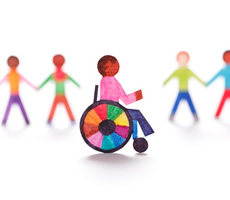
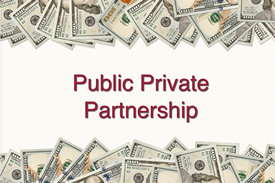


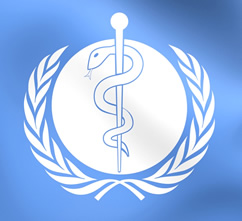

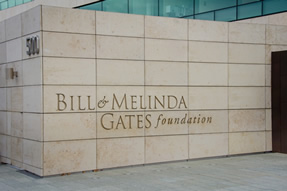


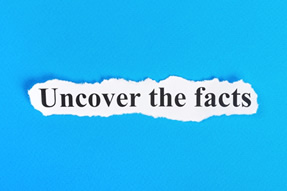

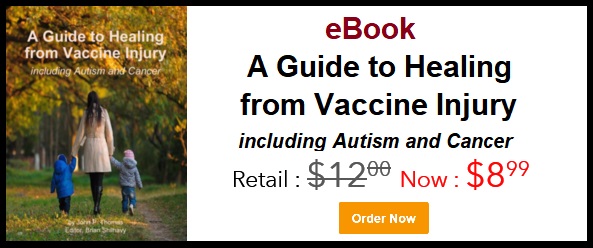
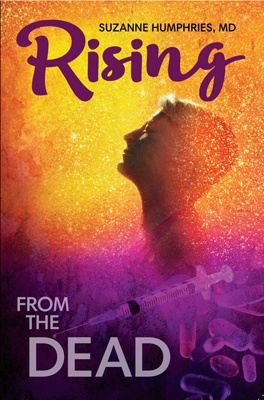
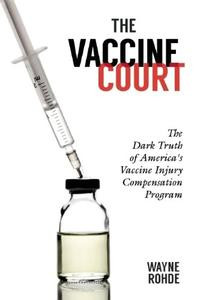
One Comment